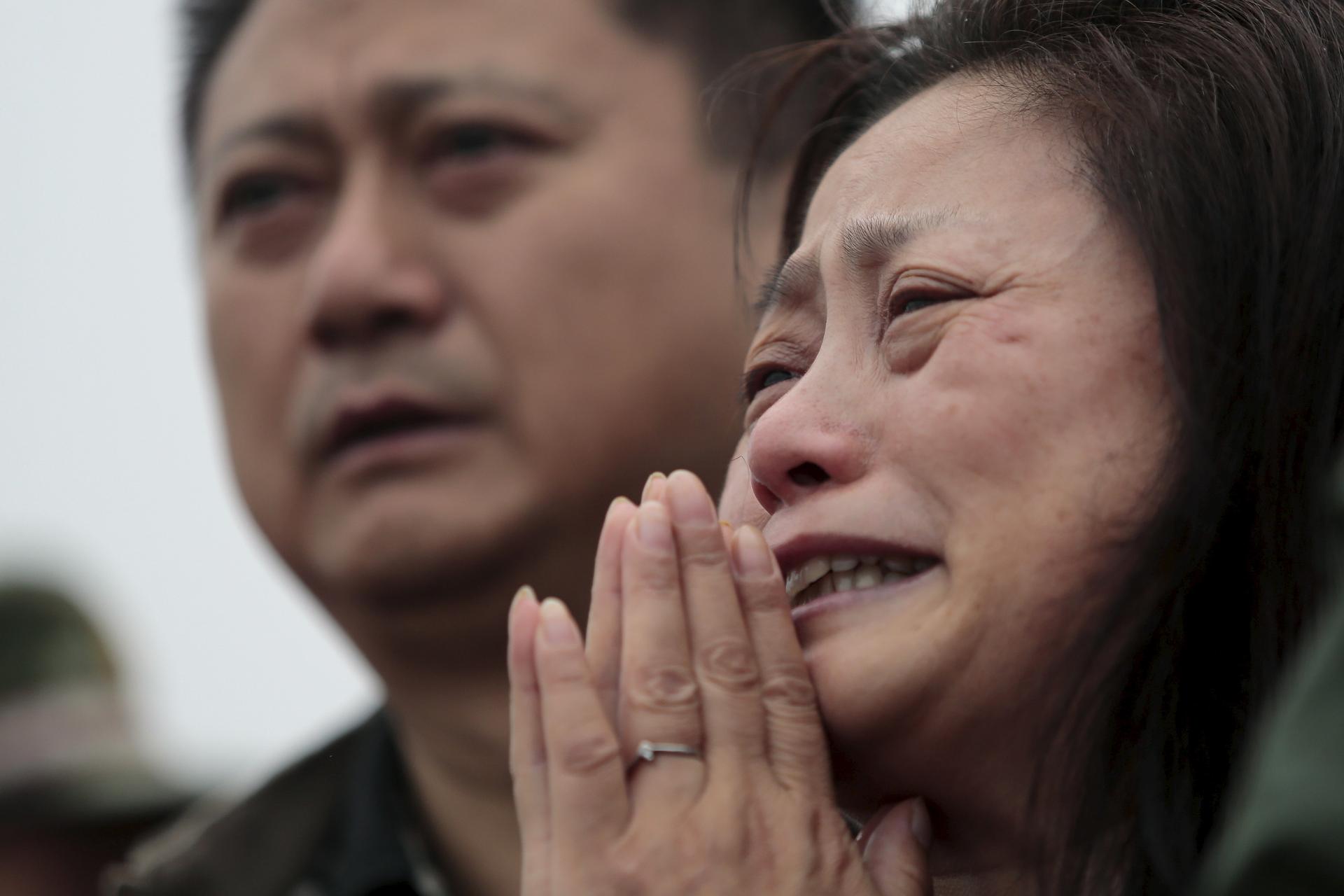A relative of a missing passenger aboard the capsized ship Eastern Star cries on the banks of the Jianli section of Yangtze River in Hubei province, China, June 4, 2015.
Two days after the Eastern Star cruise ship sank in the Yangtze River, families are still largely in the dark about the fate of their loved ones.
Out of the 450 passengers who were on board the ship, only 14 survived, hundreds are missing. The official death toll stands at 75. Meanwhile, the Chinese government has been trying to control what is reported about the disaster.
David Wertime, senior editor for Foreign Policy Magazine says Chinese authorities have ordered reporters at the scene to leave. The government has also stopped families of victims from gathering at the site of the incident.
"If you have families — images of family members, distraught, weeping by the river bank, that's the kind of visual that might not be what the Chinese government wants," he says.
In the old days, merely censoring reports about the incident would be enough. But now authorities are going further.
"On one hand, they are curating carefully and censoring and controlling discussion, but on the other they are pushing information into that space," Wertime says.
In other words, state-sponsored outlets publish stories that the Chinese government wants people to hear.
"They are doing this … by [publishing] images of and stories about the rescue workers, how hard they're working, how the Chinese Premier Li Keqiang has gone to the scene and is eating a boxed, working lunch," he adds.
But the Chinese, who are used to state censorship, have been talking about the disaster online. In fact, according to Wertime, the accident is a huge topic on Chinese social media.
"Hashtags mentioning this incident on Weibo — China's equivalent of Twitter — show 1.6 billion mentions of this incident," he says.
Some comments have been removed, but others have trickled out.
Every day, reporters and producers at The World are hard at work bringing you human-centered news from across the globe. But we can’t do it without you. We need your support to ensure we can continue this work for another year.
Make a gift today, and you’ll help us unlock a matching gift of $67,000!
